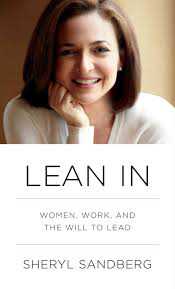Leaning In Can Get You Laid Out

Media discussions of Sandberg’s advice for getting ahead in the corporate world miss an important consideration, says author and social media strategist Courtney E. Martin.
One of the neglected currents underneath the controversy surrounding Facebook COO Sheryl Sandberg’s new book, Lean In, is about health. The female body, just like the female life, has its limitations. Many women, lean so far in, ignoring the aches and pains created by a stressful, sleepless, sanity-obliterating life, that they crash and burn.
For my own mother, it came in the form of an auto-immune illness when she was in her early 40s and I was in junior high school.
She would force herself to wake up with us in the morning to participate in the flurry of breakfast scarfing and lunch packing before we headed off to school for the day, and then crawl back into bed again once we were out of sight.
Part of how my mom got so sick is that she drove her immune system into the ground by constantly overriding its signals—i.e. “leaning in” when her body was telling her that it needed to “lean out,” rest, and heal for a bit.
She mostly hid the exhaustion, the chemical sensitivity, the aching joints, the migraine headaches caused by chronic fatigue syndrome, a disease that affects nearly 1 million Americans each year (experts believe four times as many women than men suffer from it). She didn’t want her kids to grow up thinking they had a sick mom.
I spoke with hundreds of young women while researching my first book, Perfect Girls, Starving Daughters: How Perfection is Harming Young Women, and found that a shocking number of them had similar stories. One remembered when her mother, a nurse who juggled raising five children with fulltime work, simply disappeared for a month; the daughter was told that her mother went on “a vacation,” but later found out that she was hospitalized for mental health issues. Another told me about her mother’s battle with stress-induced stomach problems, made worse by her debt worries. Others spoke of eating disorders, cancer, heart disease, and diabetes.
In other words, there is a generation of young women aching into their own adult choices, painfully aware of the ways in which our own mothers leaned so far in that they compromised their own health. They refused to embrace the wisdom of, not just temporal, but physical limitations. Our mothers took care of business and us, while refusing to take care of themselves; the message was in the modeling: nurture everybody…except yourself.
Lest one think these are just the ailments of the kinds of women who have been obsessively discussing Sandberg’s book—those with relative privilege—think again. The health risks associated with being a woman who does too much are even more pronounced for women of color. According to a report by the Kaiser Family Foundation, women of color fare far worse than white women across a broad range of health indexes, including insurance coverage and late or no prenatal care. According to another recent study, black women between the ages of 49 and 55 were 7.5 years biologically “older” than white women. Indicators of perceived stress and poverty accounted for 27 percent of this difference.
Women suffer disproportionately from a range of ailments related to stress. According to a recent study,
1 in 12 women will suffer from an autoimmune illness in her lifetime. Women are more than 2.5 times as likely tosuffer from depression than men and 2 times as likely to suffer from anxiety.
In part these disparities may be because men have higher androgen levels than women. According to Paul J. Rosch, MD, FACP, president of the American Institute of Stress (AIS), “Women tend to react to stress differently than men. They don’t respond with the fight or flight response — they’re more apt to negotiate.”
I am not blaming women, or mothers (God knows they get enough blame in the media these days), for their illnesses. But it would be shortsighted for us to continue to feed the beast of this “lean in” debate without acknowledging the health risks. Trying to be everything to all people (what Dr. Rosch might call “negotiating”) is physically dangerous, particularly in a country with such a perilous lack of structural support—child and health care, maternity and paternity leave, among much more.
Perfectionist delusions plus structural inadequacies create stress and stress creates disease; the math is simple and, yet, it still seems to somehow add up to a leadership style, rather than a health care crisis, in our popular debate.
More articles by Category: Economy, Feminism, Health, Media
More articles by Tag:



























